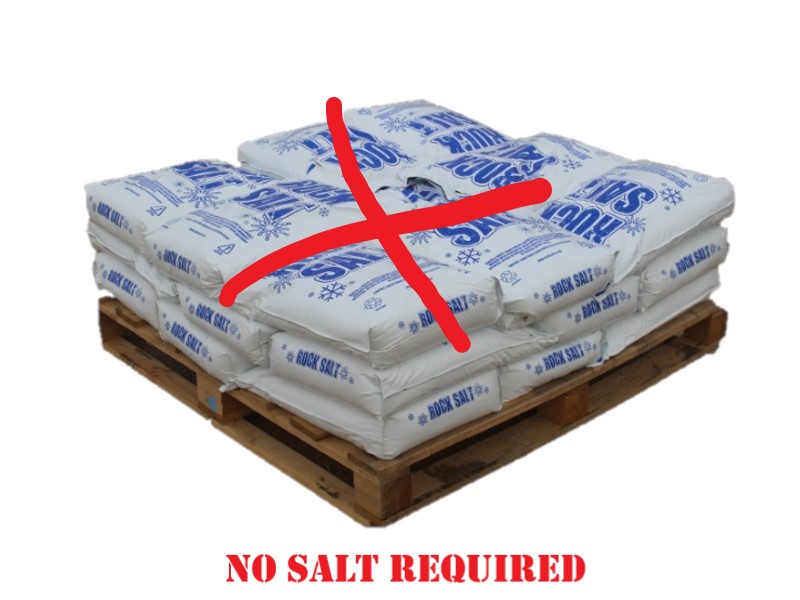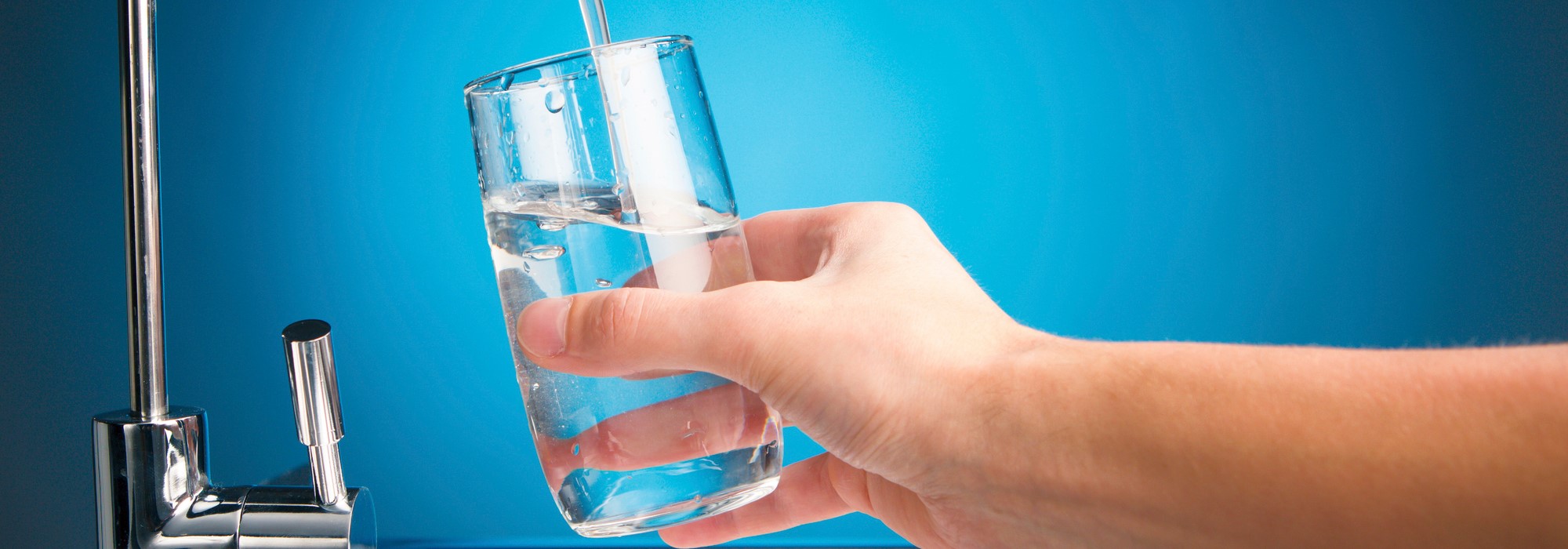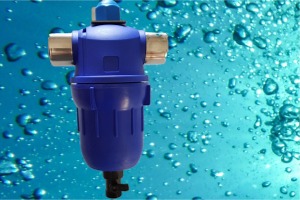Our water experts work hard to engineer quality filter products, so we can bring you the very best water treatment solutions for your home.
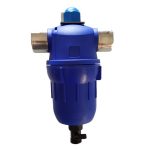
The innovative Silkwater range of whole-house hard water conditioners with built in filters and descalers, eliminate the hassle of timers, computers and electrical breakdowns by using water pressure instead of electricity. The space-saving design makes for quick and easy installation in comparison to large bulky conventional salt based water softeners.
Many people live in hard water areas which means water flowing from their taps or faucets contains higher levels of compounds like magnesium and calcium. The most noticeable difference between hard water and soft water is that it’s more difficult to create a lather with hard water, due to the way calcium compounds react with soap. Another very noticeable effect is staining on stainless-steel sinks and kitchen worktops.
However, the full extent to which hard water affects our homes and lives is much greater. For example, limescale from hard water builds up in plumbing system components such as water boilers, heat exchangers, radiators and pipes resulting in expensive repair bills. More laundry detergent has to be used when washing clothes to counter the effects of hard water. The lifespan of appliances like your washing machine and dishwasher is estimated to be reduced 3.3 years when using hard water.
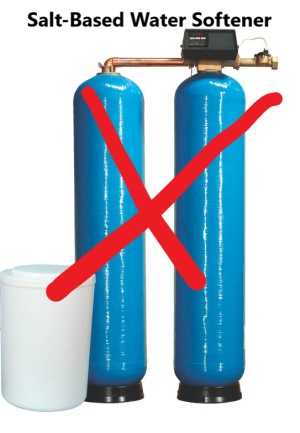 The older technology solution, a conventional water softener which uses salt is not environmentally friendly. In fact, many cities are now discouraging or even banning conventional salt based water softeners as they do not want to deal with the brine discharge and the negative effects on the environment. When salt in the form of brine is added to the wastewater stream on a city-wide level, the only treatment that can remedy the problem is desalination. Desalination is the process of removing salt from water. This seems simple enough but it costs millions of dollars for a city to build a desalination plant. When only 12-18% of the population uses a salt-based water softener, it seems unfair to ask everyone else to help cover the cost of an expensive solution.
The older technology solution, a conventional water softener which uses salt is not environmentally friendly. In fact, many cities are now discouraging or even banning conventional salt based water softeners as they do not want to deal with the brine discharge and the negative effects on the environment. When salt in the form of brine is added to the wastewater stream on a city-wide level, the only treatment that can remedy the problem is desalination. Desalination is the process of removing salt from water. This seems simple enough but it costs millions of dollars for a city to build a desalination plant. When only 12-18% of the population uses a salt-based water softener, it seems unfair to ask everyone else to help cover the cost of an expensive solution.
Some cities in the US that have banned water softeners include Los Angeles, Riverside, San Diego and Santa Barbara. To ensure compliance, these cities send industrial waste inspectors to residential homes to search for illegal salt-based water softener systems. If a resident chooses to not let the inspector search their home, they can be charged with a sewage bill with a fine of up to $2,000 with the assumption that they still have a salt-based water softener in use.
Cities in California and other states are taking the ban on salt based water softeners seriously to also mitigate the negative effects of the high-sodium wastewater (brine) on agriculture. For homes with septic tank systems in rural areas, the brine discharge from a salt based water softener also has negative effects on the septic system.
The viable alternative to a salt-based water softener is the SW200XL Water Conditioner Ultra or one of the SW300 Series from Silkwater Technologies. When you install and use a Silkwater water conditioning device, you will have clean, healthy, fresh water without compromising local agriculture or the environment.
